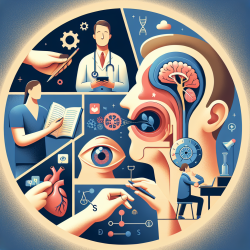Introduction
The transition to college life is a significant milestone in a young adult's life, often accompanied by various stressors and challenges. Understanding the factors that contribute to positive health outcomes in college students is crucial for educators, counselors, and health practitioners. The research article "Not all developmental assets are related to positive health outcomes in college students" by Zullig et al. (2011) provides valuable insights into the complex relationships between developmental assets, life satisfaction, and health-related quality of life (HRQOL) among college students.
Key Findings
The study employed structural equation modeling to explore the relationships between developmental assets and health outcomes among a sample of 765 college students. The findings revealed that not all developmental assets are linked to positive health outcomes. Here are some significant results:
- Family Communication: Increased family communication was associated with higher life satisfaction among students.
- Non-Parental Role Models: Surprisingly, students with more non-parental role models reported decreased life satisfaction and increased poor mental HRQOL days.
- Future Aspirations: Higher levels of future aspirations were linked to increased poor mental HRQOL days, suggesting potential stressors related to future planning.
Implications for Practitioners
For practitioners working with college students, these findings highlight the importance of focusing on specific developmental assets that positively impact students' well-being. Here are some practical steps practitioners can take:
- Enhance Family Communication: Encourage students to maintain open lines of communication with their families. Workshops and counseling sessions can be designed to improve family interactions and support systems.
- Re-evaluate Role Models: Help students identify and cultivate relationships with supportive non-parental role models who can provide positive guidance and mentorship.
- Address Future Aspirations: Provide career counseling and stress management workshops to help students manage anxiety related to future planning and career aspirations.
Encouraging Further Research
While this study offers valuable insights, it also raises questions about the nuances of developmental assets and their impact on health outcomes. Practitioners are encouraged to delve deeper into this area by conducting further research and exploring interventions that can enhance the positive effects of developmental assets.
Conclusion
Understanding the complex interplay between developmental assets and health outcomes in college students is essential for promoting their well-being. By focusing on the assets that truly matter, practitioners can make a significant impact on students' lives. For those interested in exploring this topic further, I recommend reading the original research paper.
To read the original research paper, please follow this link: Not all developmental assets are related to positive health outcomes in college students.










